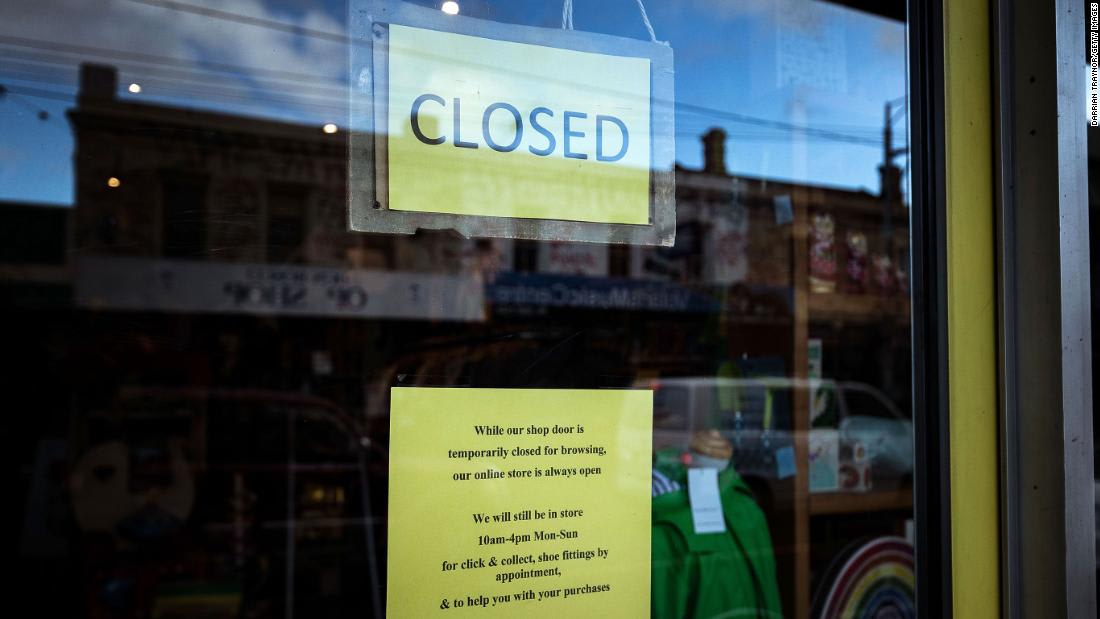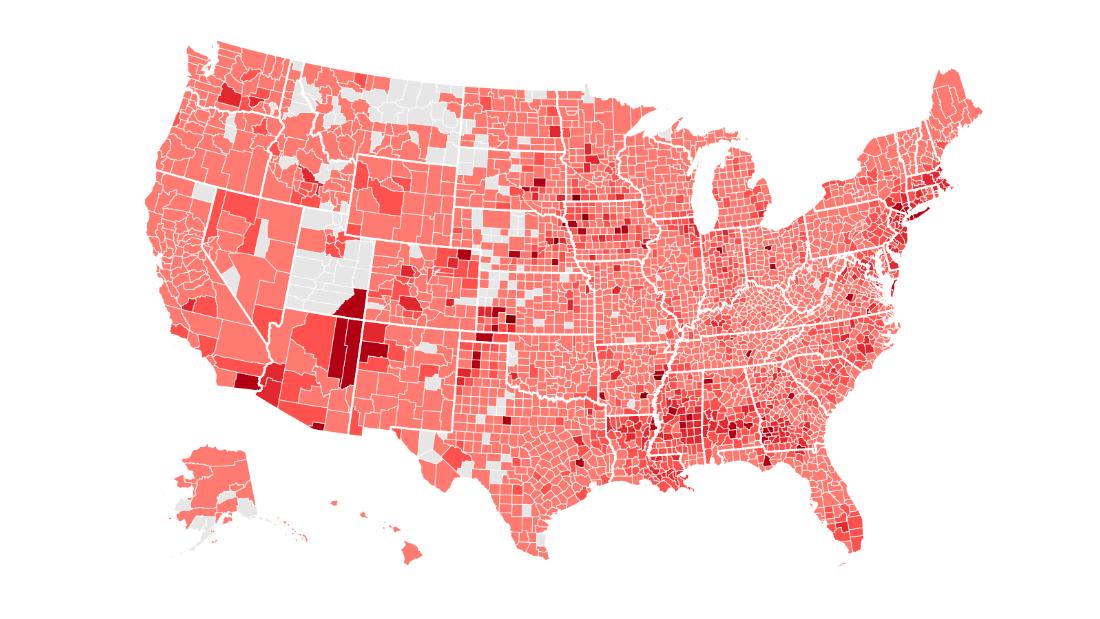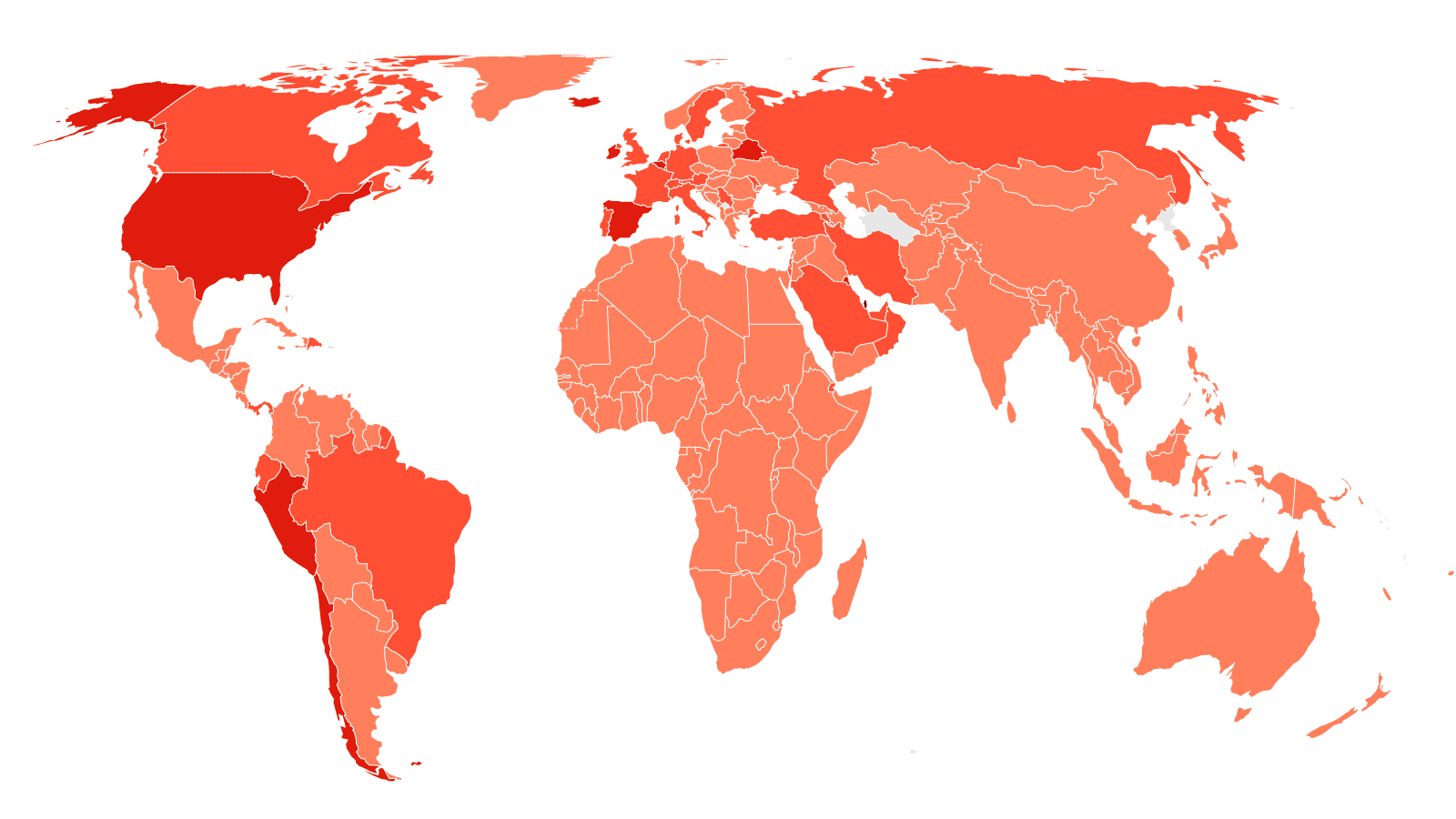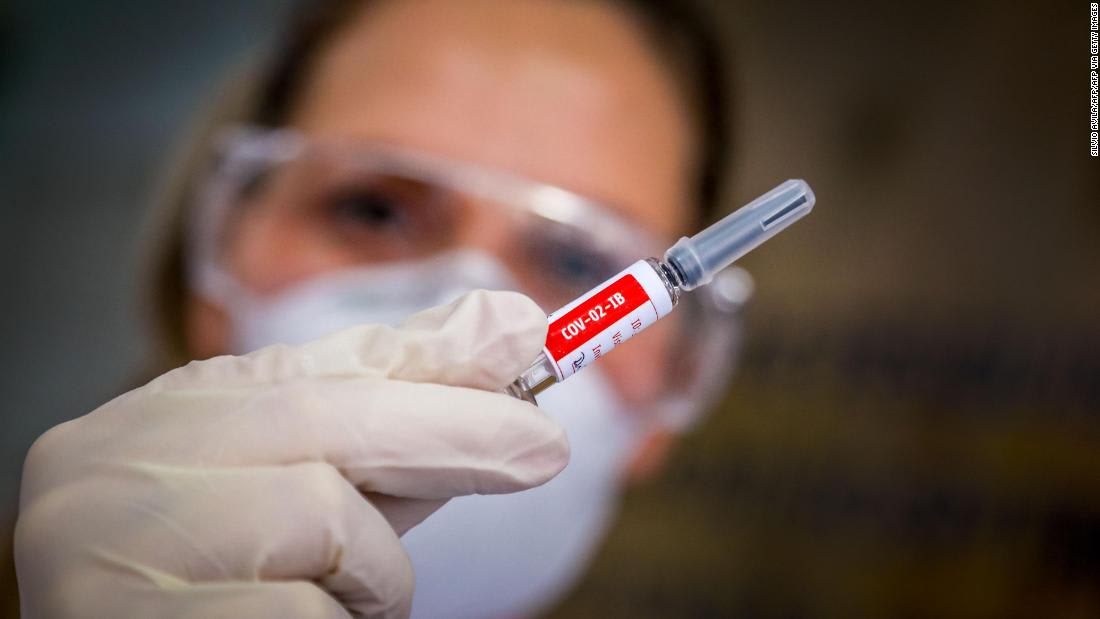Nearly 200 people indicted for clashes over face mask requirement in South Korea
From CNN's Yoonjung Seo in Seoul
Nearly 200 people have been indicted in South Korea for clashes over face mask requirements on public transportation, according to the country's vice health minister.
The government imposed the mandatory face mask rule on public transport on May 26.
Those who violate the rule can be denied entry onto public transit -- but this has led to several violent confrontations between mask-less individuals and drivers, conductors, or other passengers, the country's National Police Agency said.
Authorities have investigated 385 people for such incidents, of which 198 were indicted and arrested.
Vice Health Minister Kim Ganglip said on Wednesday that authorities are taking violations of this mandate very seriously, adding that nine other people are currently under arrest.
South Korea has reported a total of 20,449 confirmed cases of Covid-19 and 326 deaths from the virus.
The pandemic has pushed Australia into recession for the first time in nearly 30 years
From CNN's Laura He and Angus Watson
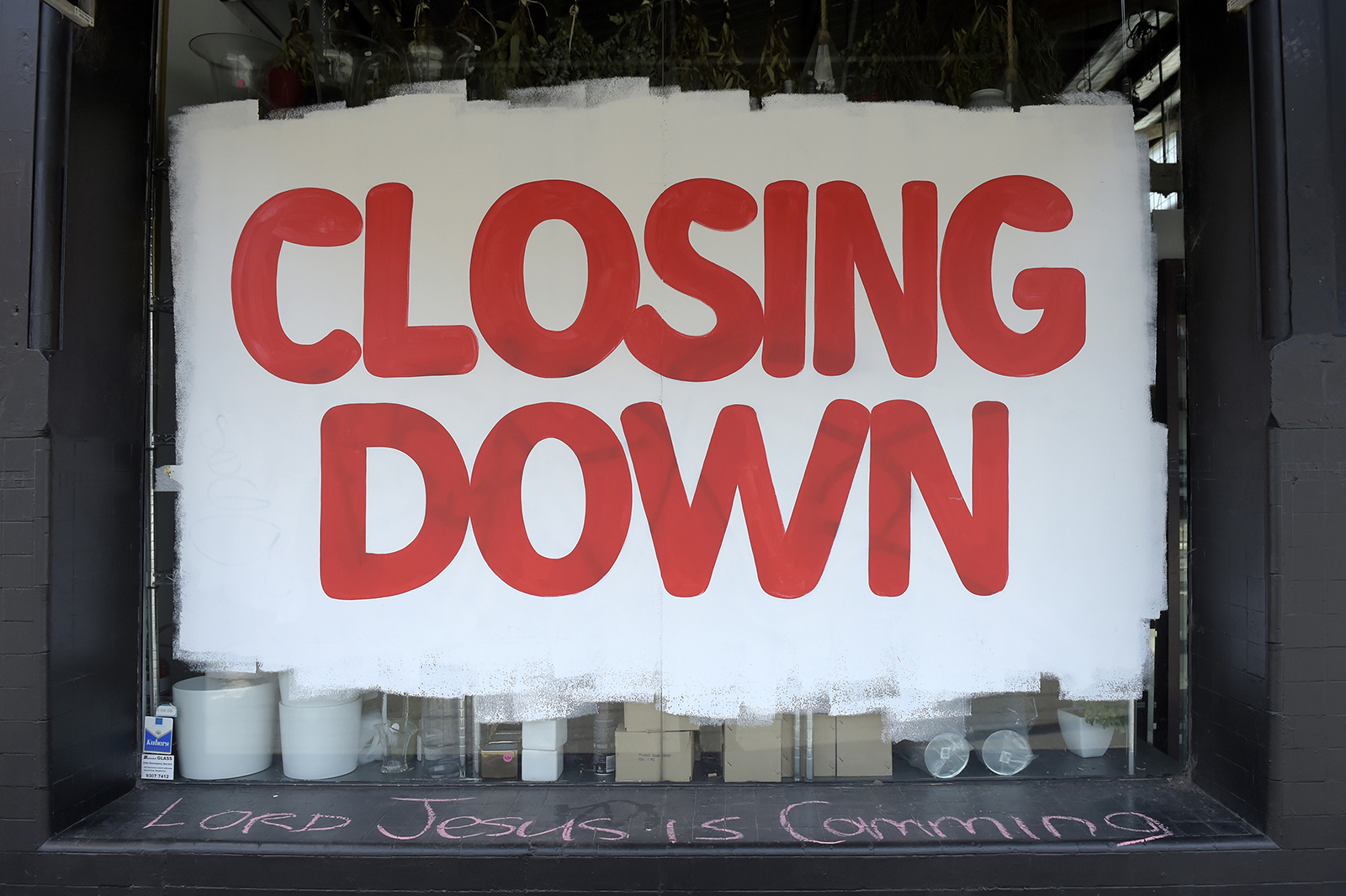 A 'closing down' sign fills the window of a homewares store in Melbourne, Australia, on September 1. Carla Gottgens/Bloomberg/Getty Images
A 'closing down' sign fills the window of a homewares store in Melbourne, Australia, on September 1. Carla Gottgens/Bloomberg/Getty ImagesThe coronavirus pandemic has officially pushed Australia into its first economic recession in nearly three decades.
The country's GDP contracted 7% in the second quarter compared to the prior one, the Australian Bureau of Statistics (ABS) said Wednesday.
It marks the second straight quarter of declines for Australia --- GDP shrank 0.3% in the first quarter --- and the largest drop since records began in 1959. It was also worse than the estimated 5.9% drop expected in a poll of analysts by Refinitiv.
Authorities attributed the fall to the pandemic and shutdown measures the country has taken to contain it, though Australia had already been wrangling with issues before then.
In the most recent quarter, the closures of hotels, restaurants and other services because of the pandemic clearly took a hit: Household consumption plunged more than 12%, while spending on services cratered nearly 18%.
Read the full story:
US records more than 43,000 new Covid-19 cases
The United States recorded 43,253 new Covid-19 infections and 1,067 virus-related fatalities on Tuesday, according to data compiled by Johns Hopkins University.
The national total now stands at 6,075,384 cases, including 184,686 deaths.
The totals include cases from all 50 states, the District of Columbia and other US territories, as well as repatriated cases.
Follow our live tracker of US cases:
South Korean pastor apologizes after more than 1,000 Covid-19 cases linked to his church
From CNN's Gawon Bae in Seoul
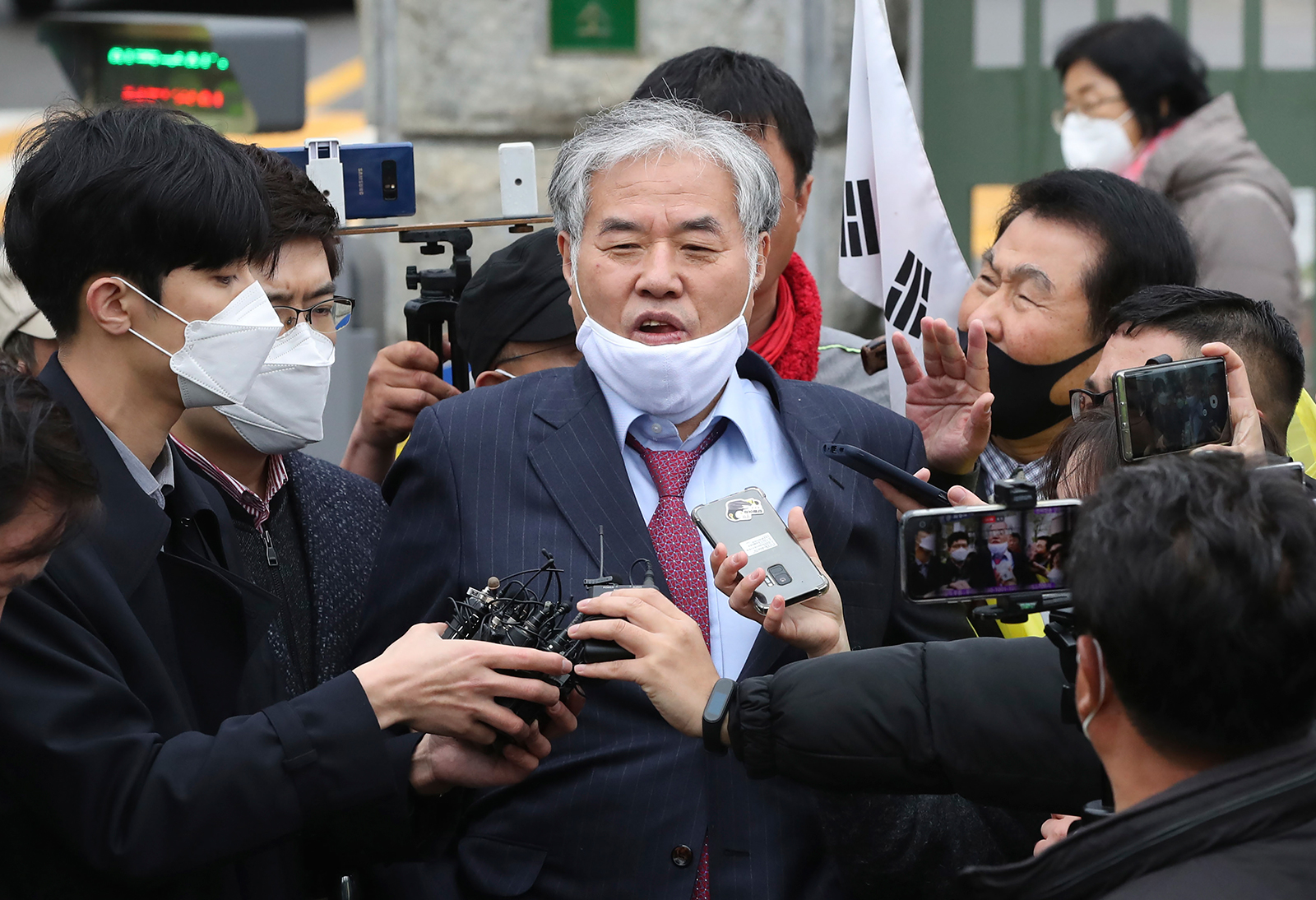 Pastor Jun Kwang-hun of the Sarang Jeil Church speaks outside a detention center in Uiwang, South Korea on April 20. Ko Jun-beom/Newsis/AP
Pastor Jun Kwang-hun of the Sarang Jeil Church speaks outside a detention center in Uiwang, South Korea on April 20. Ko Jun-beom/Newsis/APJun Kwang-hoon, pastor of the Sarang-jeil Church in South Korea's capital Seoul, apologized to the public today after being released from the hospital 16 days after testing positive for Covid-19.
The church attracted widespread backlash in August when it became the center of a coronavirus outbreak. As of Tuesday, 1,083 cases have been linked to the church, according to the country's Centers for Disease Control and Prevention.
On Wednesday, Jun addressed the public wearing a face mask and apologized for the concerns he and his church have caused.
Following the church's outbreak, Seoul's government said it would seek damages against Sarang-jeil Church and Jun for wasting administrative resources and money through their non-compliance.
Jun was already facing criminal charges at the time for allegedly violating quarantine and obstructing contact tracing.
Night curfew to be imposed in Havana for first time as coronavirus cases surge again
From CNN's Patrick Oppmann in Havana
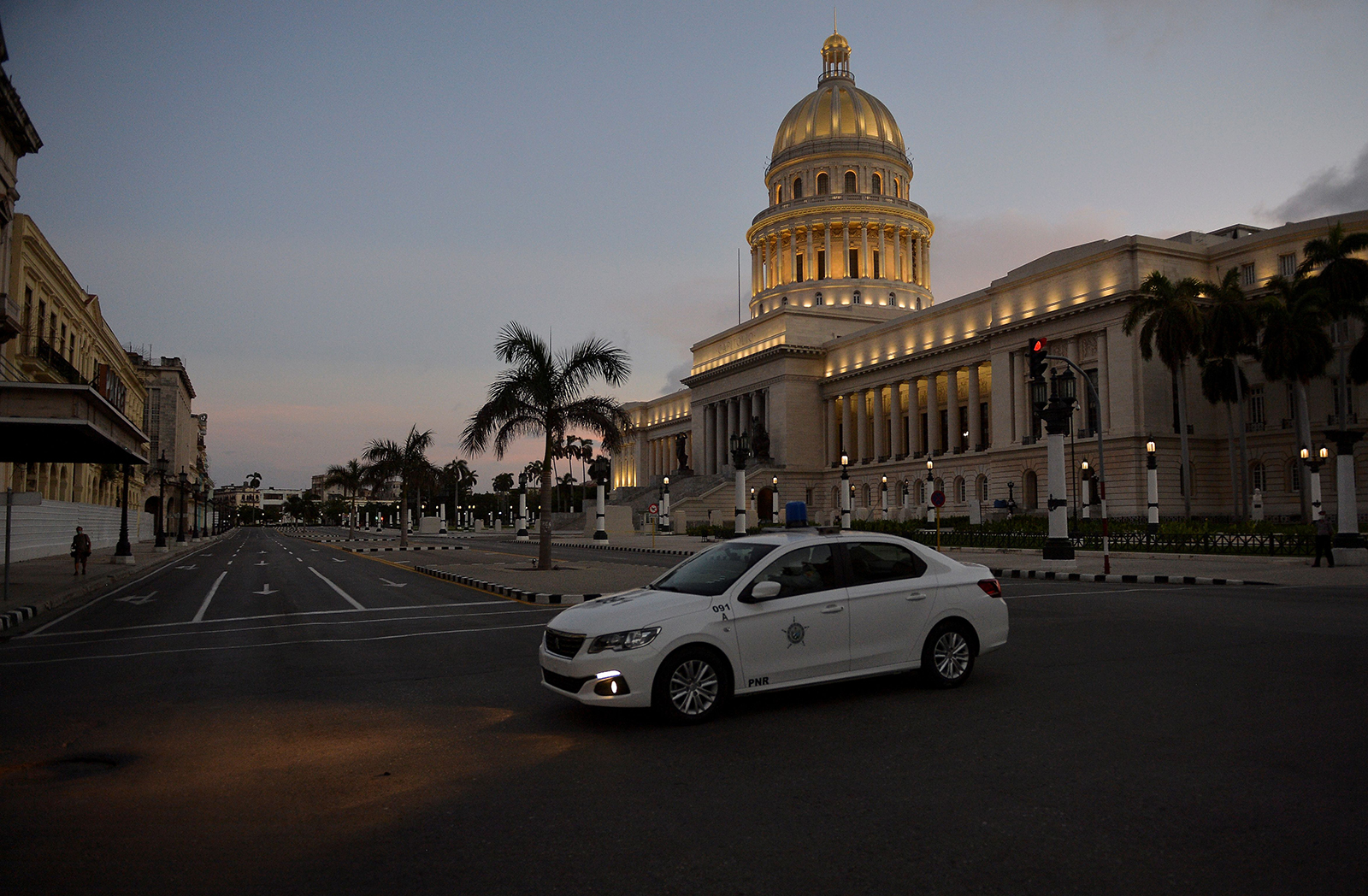 Cuban police patrol the streets of Havana during a curfew imposed to contain the resurgence of Covid-19, on September 1. Yamil Lage/AFP/Getty Images
Cuban police patrol the streets of Havana during a curfew imposed to contain the resurgence of Covid-19, on September 1. Yamil Lage/AFP/Getty ImagesFor the first time since the coronavirus pandemic hit Cuba, Havana residents will face a nightly curfew and will not be allowed to travel to other provinces, the city's mayor said.
Cuban authorities have struggled to control a second wave of coronavirus outbreak in Havana, just weeks after they had said the spread of the virus was all but defeated on the island.
The curfew, from 7 p.m. to 5 a.m., starts Tuesday evening local time. It will last for at least 15 days, said Gov. Reinaldo Garcia Zapata.
He added that the new restrictions will also increase penalties on people not wearing a mask, and ban the consumption of alcohol in public.
Cuba has recorded a total of 3,806 coronavirus cases and 92 deaths, according to data from Johns Hopkins University.
Mexico's total Covid-19 cases top 600,000
From CNN’s Natalie Gallón in Mexico City and Leighton Rowell in Atlanta
Mexico reported 6,476 new cases of Covid-19 and 827 virus-related deaths on Tuesday, according to the country's Health Ministry.
That raises the country's total to 606,036 infections and 65,241 fatalities.
In Latin America, Mexico has reported the fourth-highest number of total coronavirus cases, following Brazil, Peru and Colombia, according to data from Johns Hopkins University.
CNN is tracking worldwide coronavirus cases here:
There's a legitimate way to end coronavirus vaccine trials early, Fauci says
From Liz Szabo, Kaiser Health News
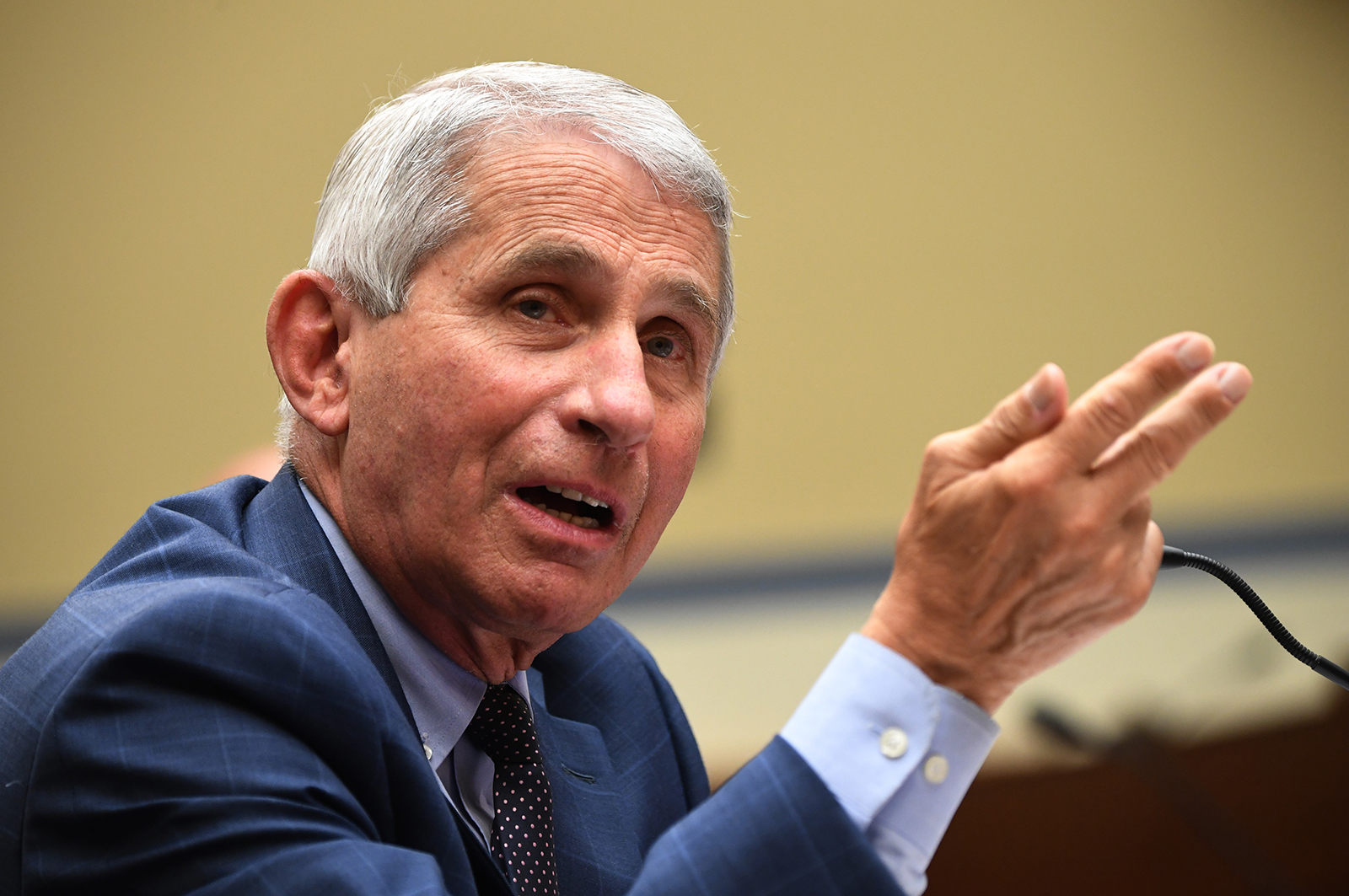 Dr. Anthony Fauci, director of the National Institute for Allergy and Infectious Diseases, testifies before a House Subcommittee on the coronavirus crisis hearing in Washington, DC, on July 31. Kevin Dietsch/Pool/Getty Images
Dr. Anthony Fauci, director of the National Institute for Allergy and Infectious Diseases, testifies before a House Subcommittee on the coronavirus crisis hearing in Washington, DC, on July 31. Kevin Dietsch/Pool/Getty ImagesA Covid-19 vaccine could be available earlier than expected if ongoing clinical trials produce overwhelmingly positive results, said Dr. Anthony Fauci, the nation's top infectious disease official, in an interview Tuesday with KHN.
Although two ongoing clinical trials of 30,000 volunteers are expected to conclude by the end of the year, Fauci said an independent board has the authority to end the trials weeks early if interim results are overwhelmingly positive or negative.
Fauci's comments come at a time of growing concern about whether political pressure from the Trump administration could influence federal regulators and scientists overseeing the nation's response to the novel coronavirus pandemic, and erode shaky public confidence in vaccines. Prominent vaccine experts have said they fear Trump is pushing for an early vaccine approval to help win reelection.
Read the full story:
More than 25,000 coronavirus cases in 37 states reported at colleges and universities
From CNN's Annie Grayer
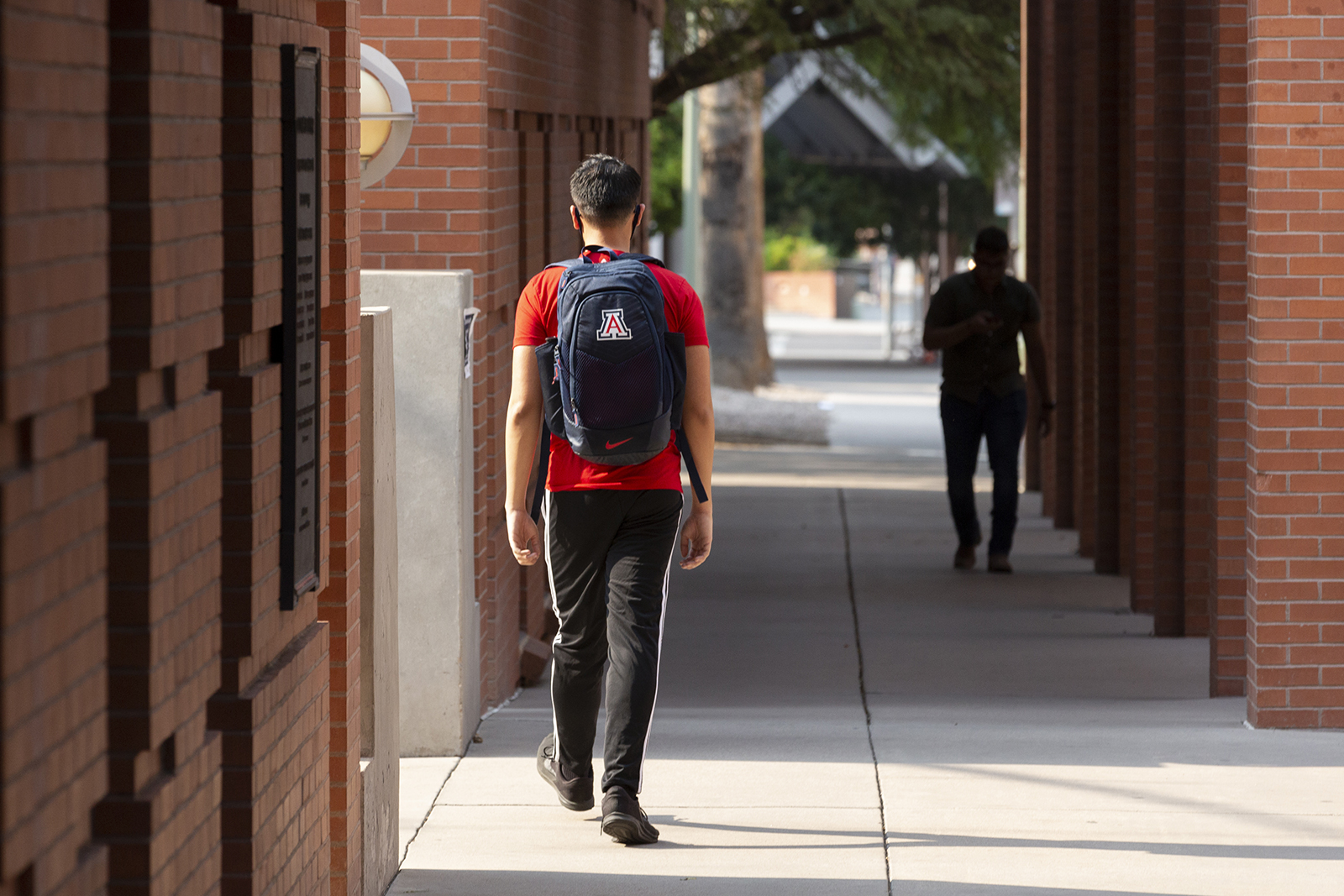 Students walk through the campus at the University of Arizona in Tucson, Arizona, on August 24. Cheney Orr/Bloomberg/Getty Images
Students walk through the campus at the University of Arizona in Tucson, Arizona, on August 24. Cheney Orr/Bloomberg/Getty ImagesSchools are reopening -- and the virus is spreading across US college campuses.
At least 37 states are reporting positive Covid-19 cases at colleges or universities, making a total of more than 25,000 cases among students and campus staff.
The states are:
Alabama, Arizona, Arkansas, California, Colorado, Connecticut, Florida, Georgia, Hawaii, Illinois, Indiana, Iowa, Kansas, Kentucky, Louisiana, Maine, Maryland, Massachusetts, Michigan, Mississippi, Missouri, Nevada, New York, North Carolina, North Dakota, Ohio, Oklahoma, Pennsylvania, South Carolina, South Dakota, Tennessee, Texas, Utah, Virginia, West Virginia, Washington and Wisconsin.
NIH panel says convalescent plasma should not be considered standard care for Covid-19
From CNN's Maggie Fox
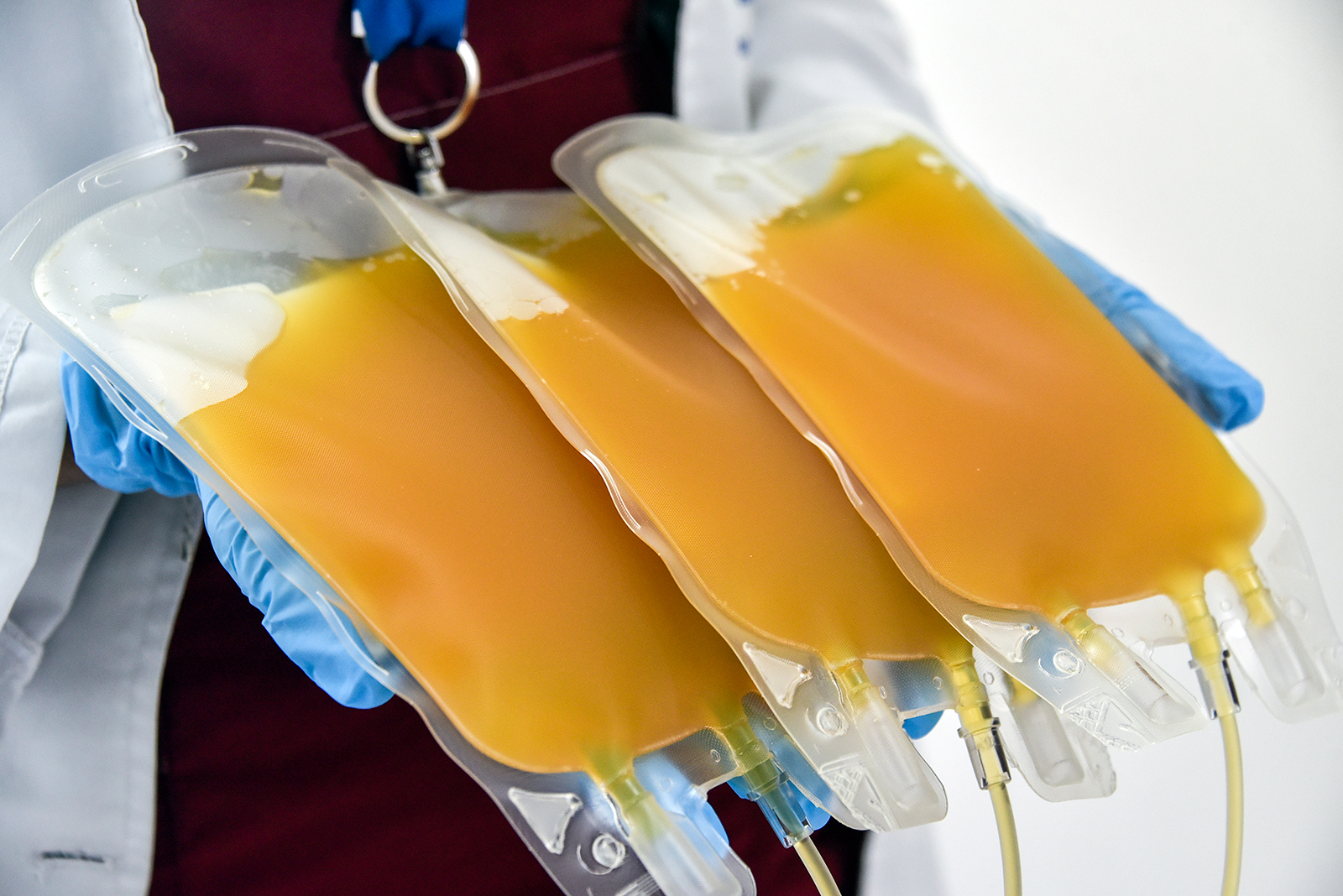 A nurse checks the plasma donated by a man who recovered from Covid-19 in Bogota, Colombia, on August 14. Guillermo Legaria/Getty Images
A nurse checks the plasma donated by a man who recovered from Covid-19 in Bogota, Colombia, on August 14. Guillermo Legaria/Getty ImagesA National Institutes of Health panel says there’s no evidence backing the use of convalescent plasma to treat coronavirus patients and says doctors should not treat it as a standard of care until more study has been done.
“Convalescent plasma should not be considered standard of care for the treatment of patients with COVID-19,” added the committee, which evaluates treatments for coronavirus.
“Prospective, well-controlled, adequately powered randomized trials are needed to determine whether convalescent plasma is effective and safe for the treatment of COVID-19. Members of the public and health care providers are encouraged to participate in these prospective clinical trials.”
Some background: Last week, the US Food and Drug Administration issued an emergency use authorization for convalescent plasma, and US President Donald Trump declared it a historic breakthrough at a news conference.
The timing raised suspicions the White House had pressured FDA -- something FDA commissioner Dr. Stephen Hahn denied several times.
But Hahn had also made misleading comments about the data supporting the use of convalescent plasma -- which is the antibody-rich serum taken from the blood of people who have recovered from an infection. The hope is infusing this plasma into new patients will kickstart their immune response. It’s a treatment that dates back more than 100 years and has never been used broadly.
The NIH panel, led by Dr. Clifford Lane, who heads research at the National Institute of Allergy and Infectious Diseases; Dr. Roy Gulick, chief of the Division of Infectious Diseases at Weill Medical College of Cornell University; and Dr. Henry Masur, chief of the Critical Care Medicine Department at NIH, said much more research is needed into whether the treatment works. Data published so far don’t really show whether it helps patients, they said.
Plus, different patients have differing levels of antibodies, so the treatment is highly variable.

 5 years ago
579
5 years ago
579 